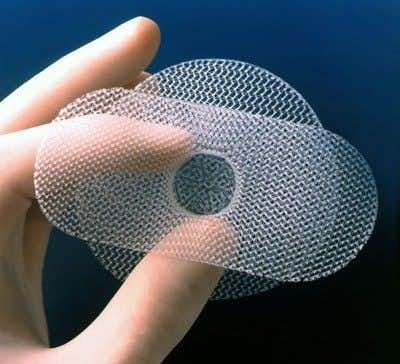This case involves a fifty-one-year-old woman who began experiencing stress urinary incontinence and problems with her bowel functions. The woman went to see an obstetrician/gynecologist who had specialized training in urogynecology and pelvic surgery. The doctor diagnosed the woman with a symptomatic third degree rectocele (a form of pelvic organ prolapse) and severe stress urinary incontinence. The doctor recommended that the woman have a transvaginal mesh implantation. The doctor implanted the mesh product and also implanted a mesh sling to treat the woman’s stress urinary incontinence. After the surgery, the woman suffered a sterile abscess along the mesh track, dyspareunia, bleeding, pain, bladder spasms, and vaginal scarring and narrowing. This caused the woman to require another surgery. After the second surgery, the woman continued to have mesh related symptoms, including erosion and pelvic muscle pain. The woman saw another doctor who recommended that the mesh products be removed.
Question(s) For Expert Witness
1. Are transvaginal mesh products dangerous to women, and how can these products cause medical problems after they are implanted?
Expert Witness Response
Transvaginal mesh products are implanted during surgery and are used to treat the conditions of stress urinary incontinence and pelvic organ prolapse. During surgery, the transvaginal mesh product is usually inserted into the woman’s vagina because this is a quick and less invasive method of surgery. The problem with transvaginal mesh products is that they have been found to be unsafe and unreliable for many women. One of the main problems is that surgery to insert the transvaginal mesh may have later complications. In some cases, the transvaginal mesh may erode through the vaginal wall (this is called “erosion”). Erosion can cause a woman to suffer bleeding, pain, infection, and nerve damage. Another complication of transvaginal mesh surgery is called “organ perforation.” This can occur if the transvaginal mesh erodes through the vaginal wall and harms other organs. If this happens and another organ such as the bladder is harmed, the woman usually has to have more surgery to correct the condition. The main problem with transvaginal mesh products is that the FDA did not originally require the makers of these products to test them before they began marketing them to the public. It was only after doctors began finding that the products caused serious health complications that the FDA started to more closely examine the risks and hazards that the products presented to women. Because transvaginal mesh products pose a great risk of health problems, there is currently an effort going on to require that the makers of these products inform patients beforehand about the serious potential complications of transvaginal mesh implants and inform all patients about the benefits of non-mesh surgery and non-surgical options.
About the author
Dr. Faiza Jibril
Dr. Faiza Jibril has extensive clinical experience ranging from primary care in the United Kingdom, to pediatrics and child abuse prevention at Mount Sinai Hospital, to obstetrics in Cape Town, South Africa. Her post-graduate education centered on clinical research and medical ethics. Dr. Jibril is currently Head of Sales in the US and Canada for Chambers and Partners - a world leading legal ranking and insights intelligence company.



